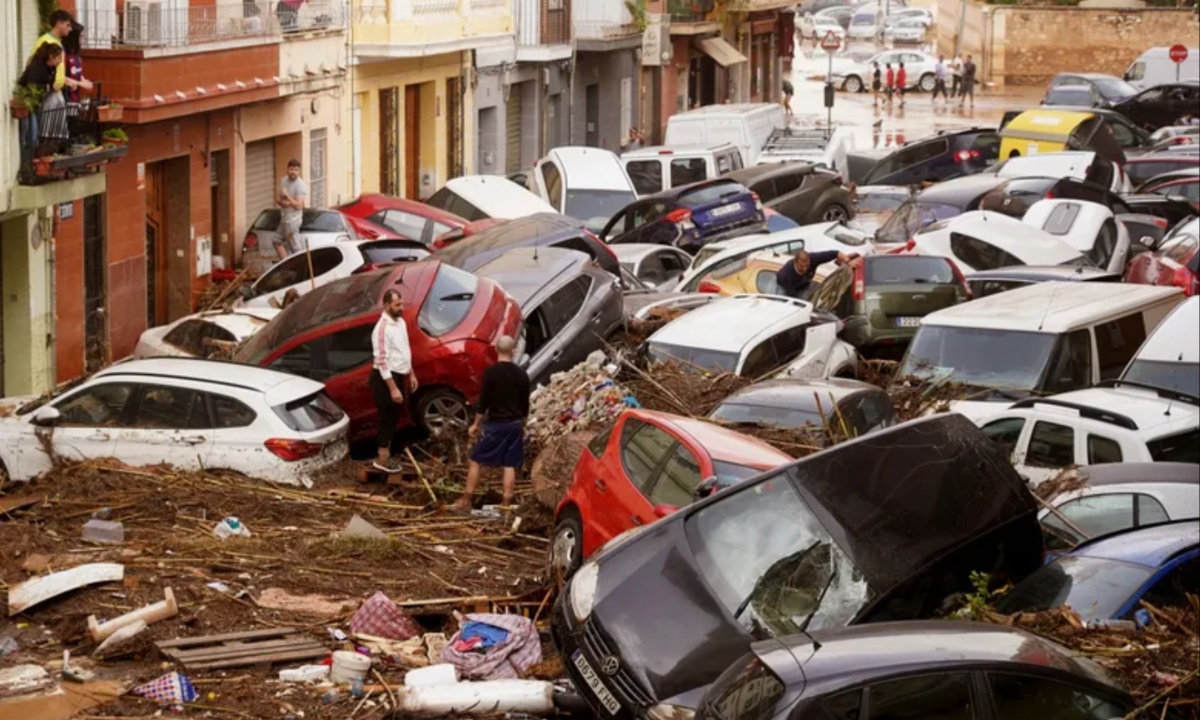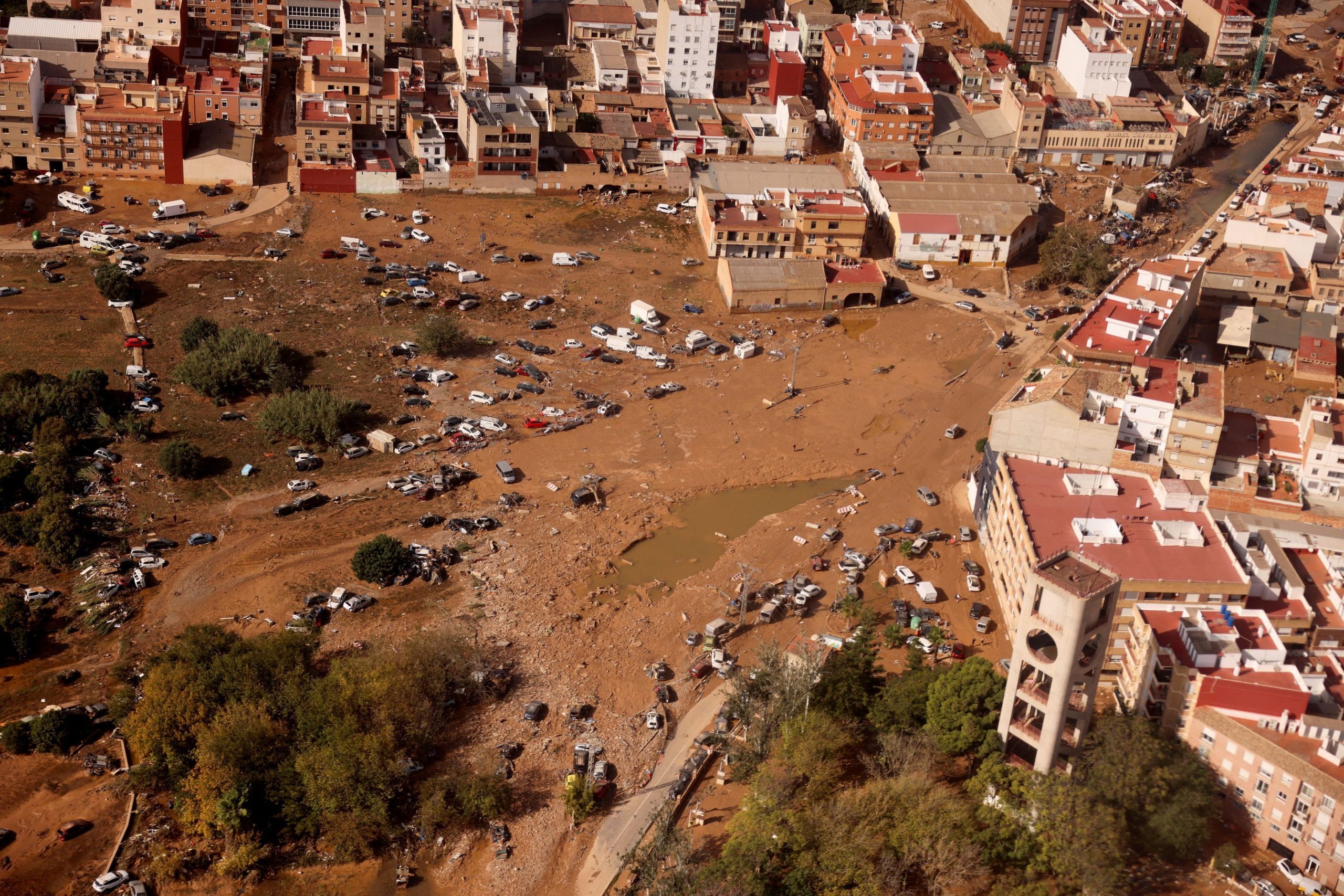Eastern Spain has been grappling with severe storms that resulted in devastating flooding last week, claiming at least 217 lives, primarily near Valencia. The situation worsened when heavy rain struck Barcelona on Monday, prompting authorities to suspend all commuter rail services in northeastern Catalonia, a region home to around 8 million residents.
The Spanish Transport Minister, Óscar Puente, confirmed the suspension was initiated at the request of civil protection officials. In response to the intense rainfall, mobile phones in Barcelona emitted alerts warning citizens of “extreme and continued rainfall” and advised avoiding typically dry gorges and canals.
As the storms persisted, air traffic controllers at Barcelona’s airport had to reroute 15 flights due to the inclement weather. The flooding also led to the closure of several highways across the affected regions.
In Tarragona, located roughly between Barcelona and Valencia, classes were canceled after a red alert for rain was issued. Meanwhile, in Valencia, search efforts continued for victims amidst the debris of homes and wrecked vehicles strewn across streets, highways, and canals that had overflowed during last week’s floods.

Severe Storms Devastate Eastern Spain, Causing Flooding and Claiming Over 200 Lives
Spain’s Interior Minister, Fernando Grande-Marlaska, reported that authorities still could not provide a reliable estimate of those missing. However, Spanish national television broadcasted emotional pleas from families desperately searching for loved ones who remain unaccounted for.
In Aldaia, a municipality near Valencia, rescue teams, including about 50 soldiers, police officers, and firefighters, searched an underground parking lot of a large shopping center for potential victims. They navigated through the inundated area using a small boat and spotlights, having already located approximately 50 vehicles but no bodies as of the latest reports.
The Bonaire shopping mall in Valencia faced a similar fate, with its 1,800 underground parking spaces rapidly filling with water and mud during the flooding. Cleanup operations, spearheaded by citizens, volunteers, and a massive contingent of soldiers and police officers, have been underway to remove mud and debris from the affected areas.
Amidst these efforts, frustration and anger have boiled over among the survivors, leading to protests against the royal couple, the prime minister, and regional leaders during their visit to Paiporta, a community that experienced significant casualties and infrastructure damage, including a lack of drinking water for the residents.
Meteorologists attribute the severity of the recent flooding to a cut-off lower-pressure storm system that became stationary over the region, exacerbated by an unusually wavy and stalled jet stream and potentially fueled by record-high sea temperatures in the Mediterranean.
In response to the disaster, the Spanish navy dispatched the “Galicia” transport vessel to Valencia’s port, equipped with marines, helicopters, and trucks loaded with essential supplies such as food and water. This support is part of a broader relief effort involving 7,500 soldiers and thousands of police reinforcements to assist those affected by the catastrophic flooding.











































